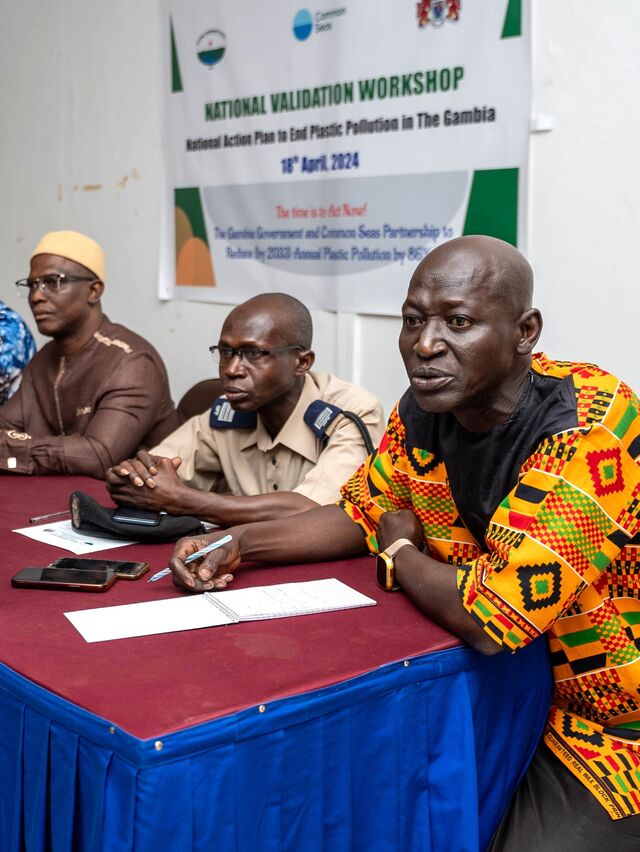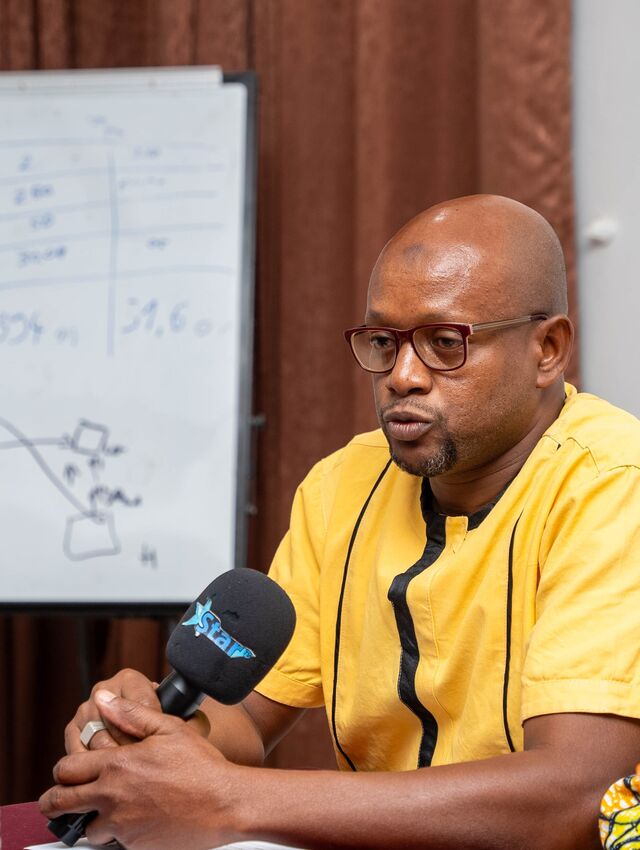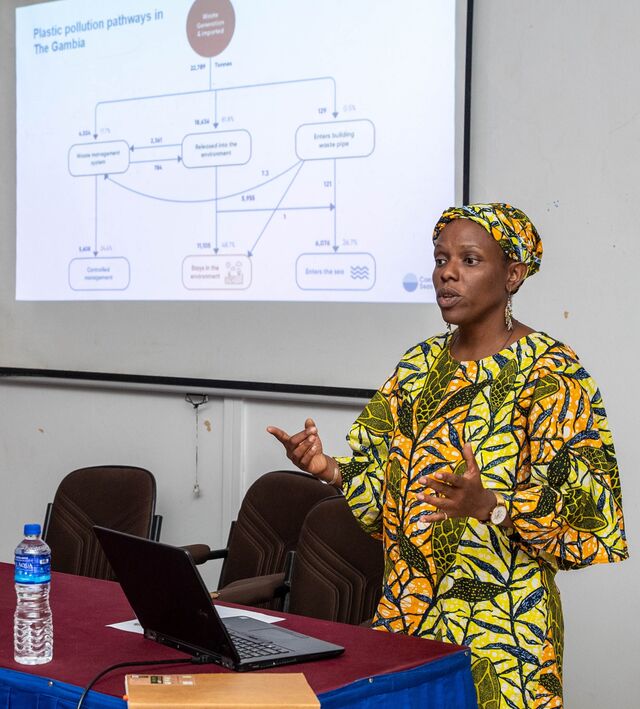National Validation event in The Gambia
9:05 AM. The conference hall of the Gambia’s National Nutrition Agency is empty but the cool air in the room is filled with an atmosphere of seriousness. Something important is about to happen.
The tables are covered with red cloths, water bottles are awaiting the participants, the projector is set. This is the National Validation Workshop of The Gambia’s National Action Plan (NAP) to tackle plastic pollution.
I am thrilled to be there, to take part of this key event, already creating pictures in my imagination of a Gambia free of plastic pollution. As the media start to settle their material, I feel a hint of stage fright as this is my first national validation event, and I will be co-presenting the NAP we have developed with The Gambia. Quickly, I put my feelings aside, focusing on the last logistical details.
Soon, the first participants start arriving, well-dressed and well prepared. They have been waiting for this moment since the stakeholder workshop in March 2023. Behind me, a banner reads: “The time to act is now! The Gambia government and Common Seas partnership to reduce by 2033 the annual plastic pollution by 86%”.
The attendees are the co-designers of the NAP: officers from the National Environment Agency (NEA); a representative of the Ministry of Environment; security officers from the police, the customs, the immigration; representatives of councils; a representative of the prosecutor’s office; members of environmental CSOs; and businesses. Today, they all gather to give their last feedback on the draft document, and to validate it.

National validation
This is an important step in the adoption of The Gambia’s NAP. Before it can be presented to the cabinet and signed by the president, the NAP will be reviewed and refined until the stakeholders are satisfied with its content. It is only then that it will be accompanied with a letter from the NEA, and submitted to the Minister of Environment for presentation at the Council of Ministers.
Today’s validation workshop is organized by the NEA who partnered with Common Seas to develop the NAP. “The government of The Gambia is very pleased with this partnership.”, underlines Mr. Njagga Touray, NEA’s Deputy Executive Director, “We extend our thanks to the management of Common Seas”.
Indeed, Common Seas and NEA have been working together since July 2022 to develop this ten-year plan for The Gambia. The version being presented during the validation workshop was amended following feedback from the week-long regional consultation with the Regional Technical Advisory Committees. “The NAP is very comprehensive; it has been reviewed. Today we are here to validate it,” continues Mr. Touray.
Among today’s participants is a member of the National Assembly. Honourable Saikou Bah, from the Basse Constituency in the Upper River Region, is pleased to see this National Validation Workshop taking place.

“At every sitting [of the assembly], concerns are raised about plastics, questions are asked. But today, we feel encouraged.” Says Hon Bah.
Hon Bah will tell his colleagues in the National Assembly about the progress being made on plastic pollution management and they all will also get prepared to review the laws needed for the NAP’s implementation.
“Congratulations to all of you”, says Isatou Ceesay, director of Women’s Initiative the Gambia, who has been working in waste management and plastic recycling for 15 years. Her voice is echoed by other participants who also applaud the strategy.
“The NAP is something for us to focus on, [it] will give us a good working tool.” states Abdou Jeng, a customs officer. For him, the plan coincides with their way of working where they apply what he calls the three Es: Education, Engagement, and Enforcement. “At the level of security, we are touched. You will have our support and engagement”.
Mrs. Fatou Jeng, an environmental activist from The Gambia Environmental Alliance speaks with emotion in her voice, “The environmental activists are very active. […] Gambia is a small country; we can clean it in a day”.
But, as others argue, lack of education and awareness means that after clean-up activities, waste is dumped again the next day. They put emphasis on the need for more awareness, while trying to answer my question on why, in spite of all the sensitization they have been doing for years, littering is still so common.
“The problem is ourselves, our attitude”, admits Mr. Komma, while others nod. They agree that, for them, the older generation, it is hard to apply the changes required. Isatou Ceesay adds, “We have to be fair to the next generation, let’s emphasize on educating the young people. We need action”.
The next step will be cabinet approval of the NAP. Once approved, the institutions will have to come together to work on the implementation budget and on how to get the funding needed. Hon. Saikou Bah points out that the Parliament has a responsibility in the implementation and he also suggests to start engaging the ministry of finance. Hon. Bah describes the gathering as “a learning course [and] a wake-up call for us to know how to manage our waste”.
I hope this call is answered by all those living in The Gambia, so the pictures in my mind can become a reality.
About the author
Ingrid Henrys

Ingrid Henrys is Common Seas’ consultant in The Gambia. Born in Haiti, Ingrid moved to The Gambia in 2021 to flee the socio-political unrest of her home country and has settled there since then. For over a year, she was the in-country Project Coordinator for WasteAid UK in The Gambia, delivering circular economy solutions in the waste management sector.
She was the Head of the National Sanitation Department in Haiti for over 2 years, before having experiences with international NGOs. She has also been the Scientific and Technical Coordinator and the Deputy Director of the Macaya National Natural Park and the Program Director for the Society Audubon Haïti that manages the Grand Bois National Natural Park.
Ingrid is passionate about the environment and is always looking for ways to work with nature and to preserve it. She holds a Master’s degrees in International Agro-Development Engineering, and Tropical Area’s Biodiversity and Conservation. In her spare time, she also designs and implements gardens.


